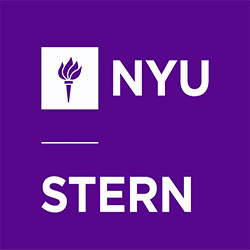I moved to New York just over a year ago to join the inaugural Andre Koo Tech MBA class of 2019. Now, with graduation just three short weeks away, I’d like to write some final thoughts about the first year of this innovative program. If you’ll be joining the next class, have only started your application, or are just exploring your MBA options, I hope these notes are helpful:
Plan Your Specializations
Stern offers over two dozen specializations and the Tech MBA degree naturally lines up with two: Product Management and Entrepreneurship & Innovation. While these specializations satisfy most students that attend Stern’s Tech MBA program, you may want to take advantage of the school’s world-renowned finance faculty and tack on a Finance or FinTech specialization to your degree instead. If so, remember that you’ll likely need to take an extra class or two by taking advantage of the free credit overload policy, and you will also need to plan your fall and spring semester schedules more carefully. While the degree is already “specialized” in tech as a whole, these additional specializations add signaling power to your resume that demonstrate your knowledge in specific disciplines.
Understand the Tech Recruiting Cycle
During the first (summer) semester, there aren’t very many students on campus. Undergraduates are on their summer vacations, incoming MBA2s are working hard at their internships, and MBA1s are still packing their bags to move to New York. It’s a quiet time for job hunting and recruiting. However, when the fall semester begins, everything changes. Part of that change involves the exhilarating, but competitive, recruiting cycle. MBA2s are recruiting for full-time positions, MBA1s are recruiting for internships, and some Tech MBAs students are still figuring out what they want to do. Believe it or not, just three months in, it’s time to recruit for a full-time job.
Many large tech firms, like Amazon and Microsoft, recruit in the fall. Larger companies have defined MBA recruiting cycles and will be on campus early. However, these tech firms are in the minority. Most tech recruiting takes place in the spring, so don’t fret if you don’t land a full-time job in the fall – there just aren’t that many.
Prep for Interviews with Classmates
After you go through a few rounds of interviews, you’ll realize that the people who conduct first-round interviews are no different than you or I. That being the case, your fellow students provide great interview practice. Before, during, and even after recruiting is complete, you should be working with your classmates to nail down solid answers to common questions, practicing product management cases, and soliciting resume and cover letter feedback. If you’re wondering why you would still want to be doing this after you’ve finished recruiting, it’s to help your other classmates who may still be hunting.
Negotiate Your Start Date
Once you do receive a full-time job offer, don’t be afraid to ask for a later (or earlier) start date. It may be very beneficial to take some time to recharge between school and work. This will allow you to walk in on your first day ready to tackle the new challenges that await you. New employers would prefer that you bring your best self to work, not your burnt-out self. Completing an MBA in 12 months is no small task and giving yourself time to reflect between the degree and your new career will be essential for long-term success.
Time Flies
I know it’s cliché, but the year really does go by in a blink of an eye. Make sure you take full advantage of being a student again. There are discounted student tickets flying around, events in the city that would conflict with a traditional 9 to 5 job, and an energy at NYU that embraces learning, failure, and everything in between.
If you’ve made the plunge and are attending Stern or any other MBA program, remember how privileged you are to be in an environment that fosters learning and is focused on helping you grow. Then, make the most of it!
